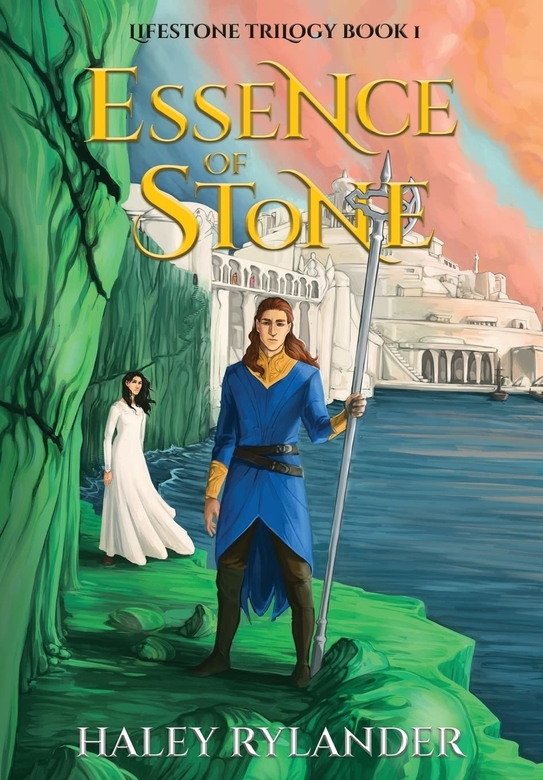The first title in the anticipated Lifestone Trilogy, Haley Rylander’s Essence of Stone is an intricately layered, grandly descriptive fantasy novel about an elf kingdom facing potential destruction.
Rylander’s novel tells the story of Gellion, a skilled metal worker and political figure who moved to the city of Daro following his father’s wartime death and the disgrace of his former mentor. Daro has flourished since the end of the Great War, an epic battle against an evil phoenix that caused much loss of life.
Gellion’s prosperity can be attributed to a substance called vierstone, which helps elves become accomplished craftsmen, and promotes emotional health by heightening the elves’ depth of feeling and connection to one another. When a series of bizarre, isolated earthquakes starts threatening the city’s supply of vierstone, Gellion and the rest of the elvish politicians must make a desperate decision to save Daro.
That choice involves a potential war alliance with the human race; a human emissary arrives with a proposal: align with his people in battle against a rival group of humans in exchange for access to a vierstone quarry. The leaders of Daro are divided over this idea – they do need the vierstone, but memories of the horrific Great War still linger. Is it worth it for the elves to get involved? And what – or who – is behind these vierstone-destroying earthquakes in the first place? It’s quite possible that these natural disasters might not be so natural after all.
The rest of Essence of Stone chronicles the results and consequences of the elves’ choice regarding the alliance, involving everything from framed murder and evil monsters to personal treachery and political betrayal. The novel is a compelling character-driven work about political intrigue and difficult decisions. The elves are dealt a terrible hand, and strong personalities clash over determining the best solution to their problems. It’s fascinating to see these struggles play out in Gellion’s own family, as his relationship with his mother and brothers has been strained since his father’s death. As someone who has seen the results of war up close and personal, Gellion is more critical of the alliance than some of the other characters.
Gellion is also highly critical of humans, and his visit to a human city is perhaps the strongest and most captivating section of the novel. While the story does take some time to get started, the narrative really picks up momentum once Gellion engages with humanity. Because elves have longer lifespans than humans, Gellion views people as obsessed with time and scarcity, making an incisive commentary about current events. Elves also don’t have currency, so it’s amusing to see Gellion thrown into the human political morass, which is all about showing off wealth, power, and prestige.
These criticisms of people can be hilarious, but they’re also hard-hitting: while the rich treat Gellion as a status symbol, the poorer residents show him genuine kindness. In these wonderful passages, the reader gets to see themselves reflected back through an elf’s astute eyes, a smart and essential opportunity for contemplation and observation.
Fantasy fiction doesn’t always take these kinds of chances with social commentary, and Rylander does this to excellent effect, never hitting these notes too hard, and incorporating subtle ideas into an elaborate and inventive work of fantasy. All told, Essence of Stone is an excellent introduction to a new fantasy series.
Book Links
STAR RATING
Design
Content
Editing
Get an Editorial Review | Get Amazon Sales & Reviews | Get Edited | Get Beta Readers | Enter the SPR Book Awards | Other Marketing Services
























Leave A Comment